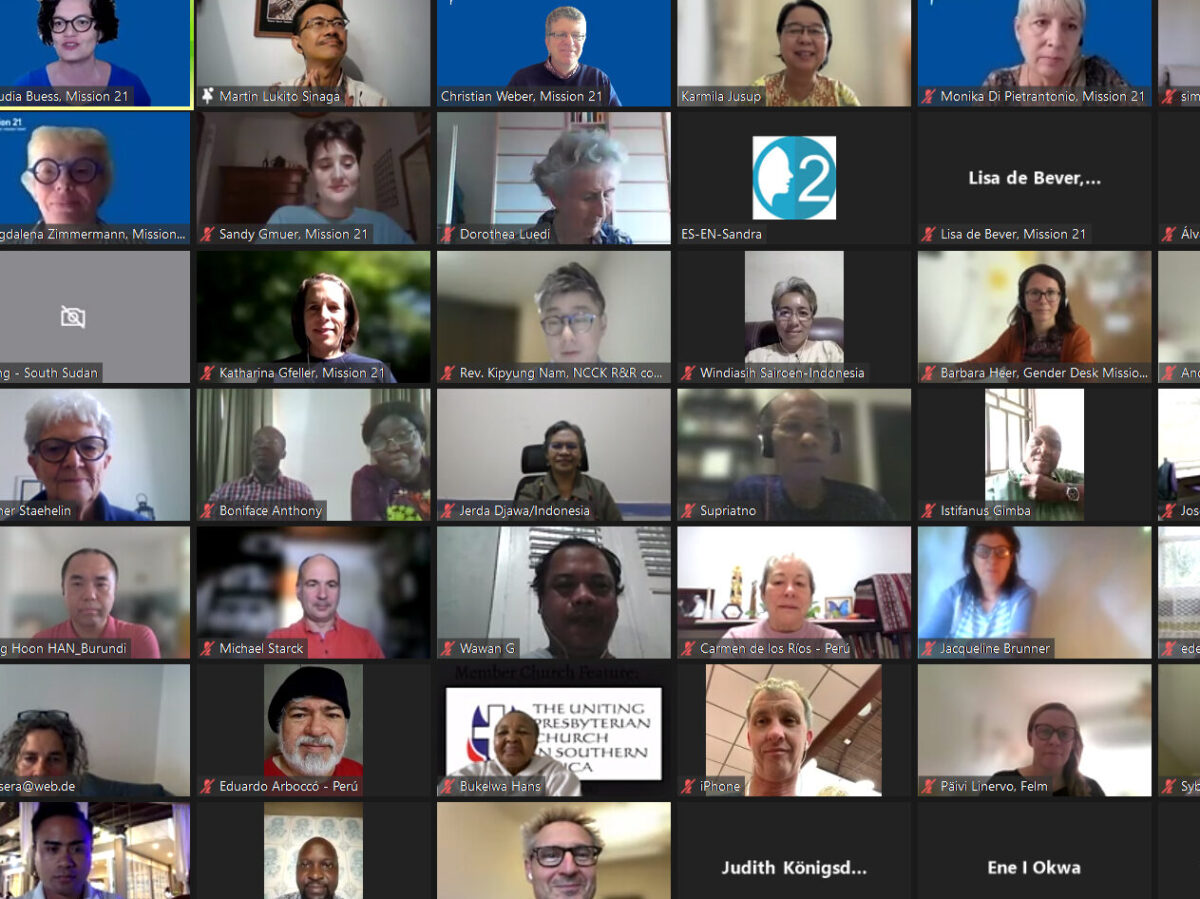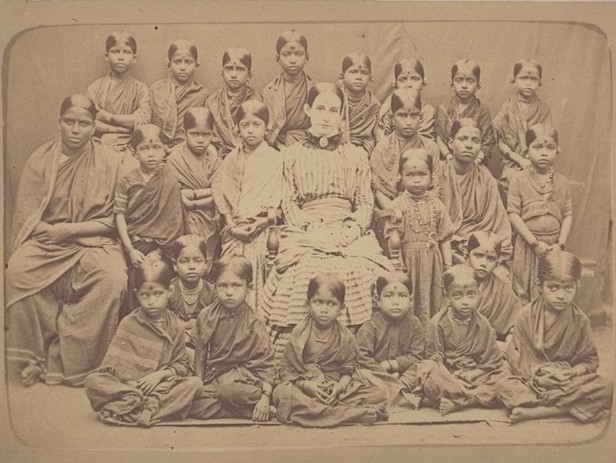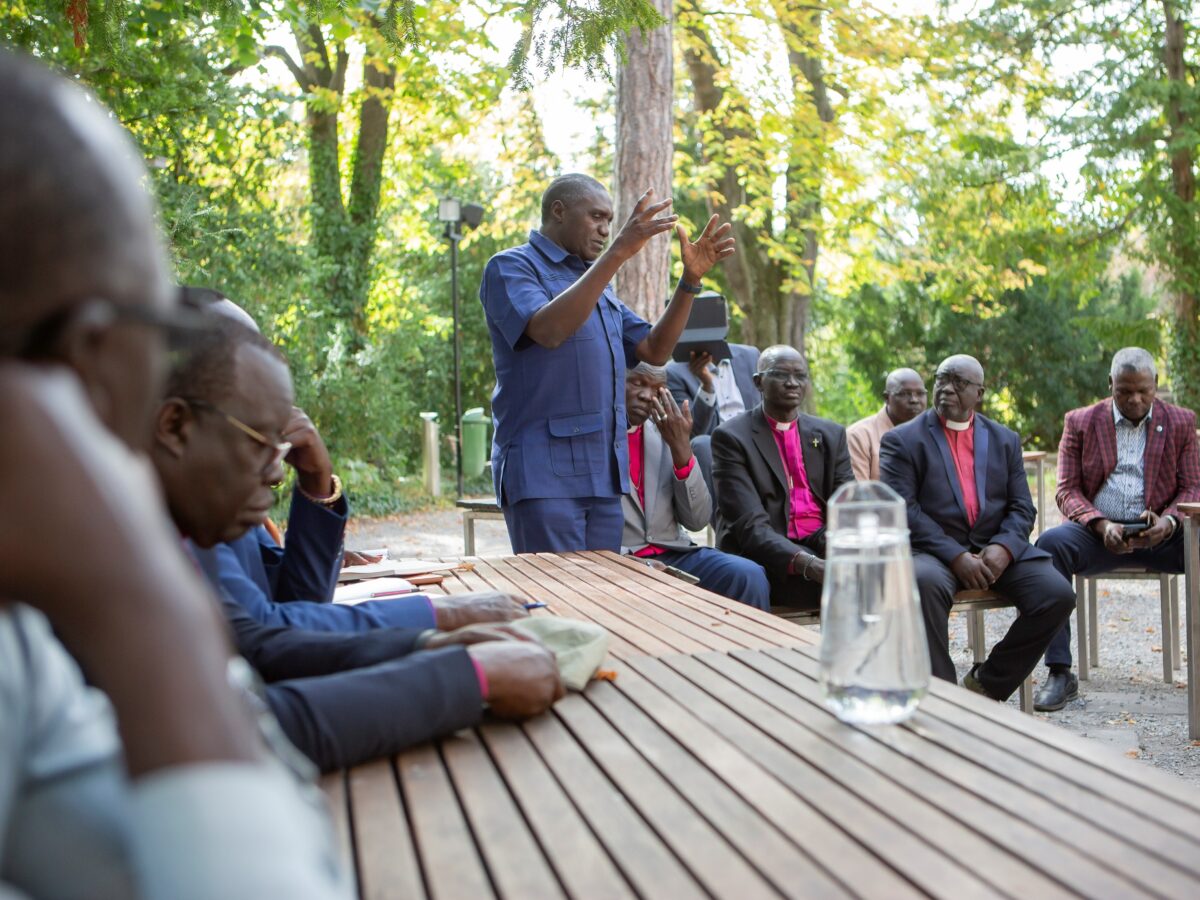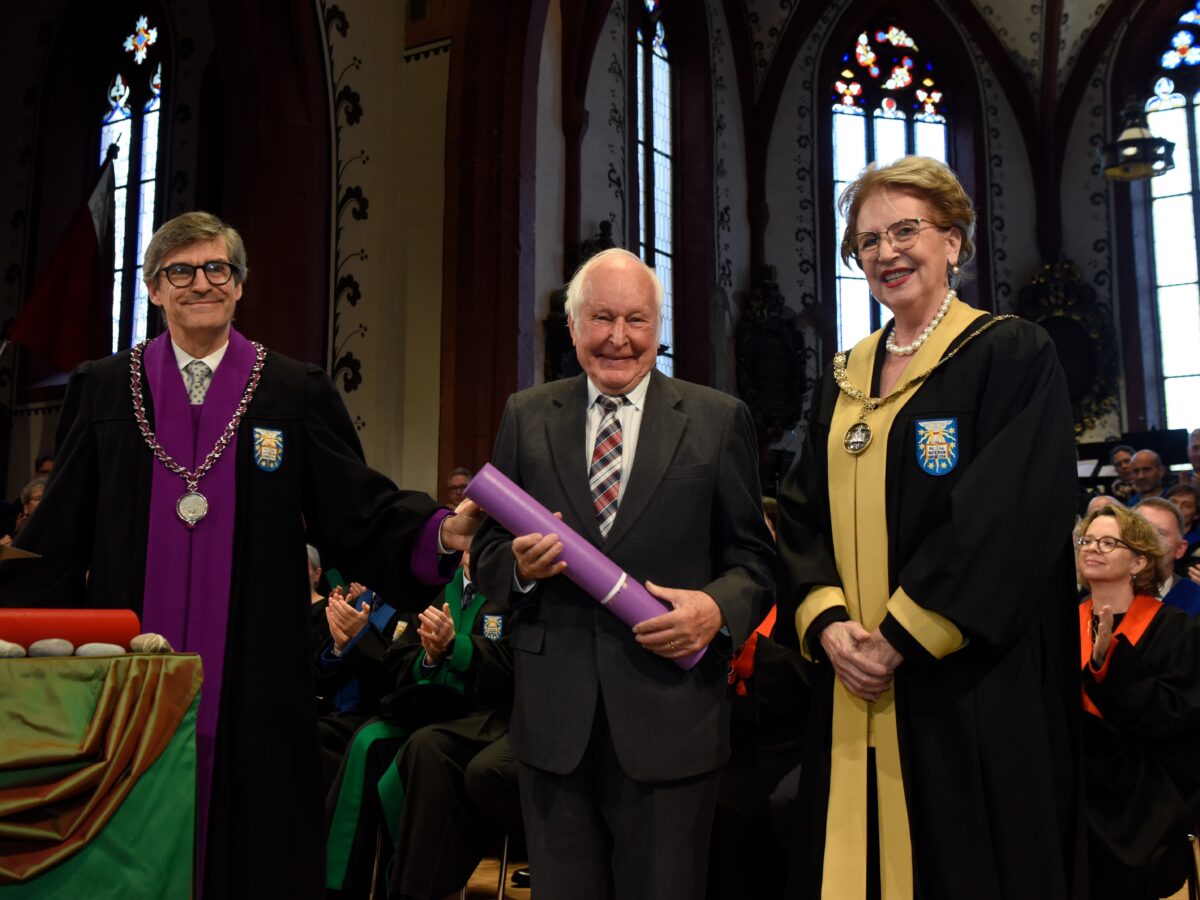Mission 21 hosted the second virtual International Forum for Interreligious and Transcultural Peacebuilding on September 19 and 20, 2024. Experts from Africa, Asia, Latin America and Europe discussed whether and how reconciliation is possible in polarized conflict situations under the topic "Dare to reconcile?".
Over 200 experts and interested parties from all over the world took part in discussions and presentations on psychological, philosophical and spiritual approaches to reconciliation and peacebuilding. The three keynote speakers offered a differentiated insight into the topic of reconciliation worldwide.
In his opening speech on Thursday Father Michael LapsleyPresident of the Healing of Memories Global Network and winner of the 2021 Niwano Peace Prize, on reconciliation in post-apartheid South Africa. Lapsley emphasized that true reconciliation is only possible through the healing of memories. It is a journey of recognizing and letting go of the past, which is like a detoxification process.
Prof. Oluwafunmilayo Para-MallamChairwoman of the African Women's Leadership Network and named one of the 100 leading women in Nigeria in 2024, was also the keynote speaker. In her presentation, she highlighted the central role of gender equality and emphasized that this can only be achieved if men and women work together as partners.
Dr. Martin Sinagatheologian and national instructor in the religious facilitation programme of the Indonesian Ministry of Religious Affairs, spoke about the importance of religion for reconciliation in a polarized society. He emphasized that interfaith dialogues and communal rituals are crucial to heal the wounds of the past and promote harmonious coexistence.
In addition to the keynote speakers six other international speakers the event. They covered a Broad range of topics ranging from psychological aspects of reconciliation and intercultural communication to theological and social approaches. In addition to the presentations, virtual discussion rooms with the speakers offered the opportunity to exchange views on the topics of peacebuilding and reconciliation.
Interview with Carmen de los Ríos
"Reconciliation is almost always understood as reunification. However, there has never been a perfect society"
Carmen de los Ríos answered a few questions in the run-up to the forum. The Peruvian is the founder and director of the faith-based human rights organization Loyola Centers in Ilo and Huamanga in Peru. For the past three years, she has also worked as a missionary delegate for the Social Apostolate of the Conference of Jesuit Provincials of Latin America and the Caribbean.
Mission 21: The theme of the Peace Forum is "Daring reconciliation? What does reconciliation mean to you?
Carmen de los Ríos: In this day and age, when we are confronted with increasing polarization, populism and post-factual [= emotional, non-objective; editor's note] politics, which are increasingly dehumanizing us, it is urgent to contribute to reconciliation. Reconciliation means building bridges, creating spaces for dialog, accepting diversity and shaping a future together as humanity.
Reconciliation is almost always understood as the reuniting of something separate, as if there had previously been harmony. In fact, however, there has never been a perfect or harmonious society to which we could return. It is always a challenge to create a better society - today more than ever.
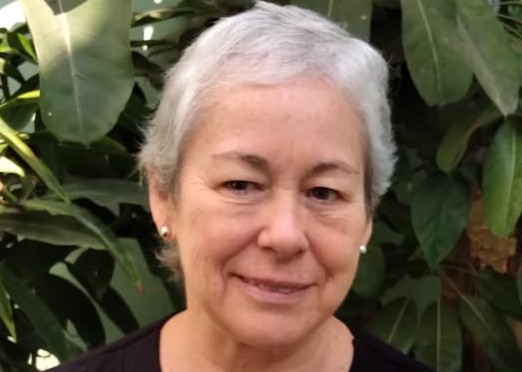
Mission 21: Where and why is reconciliation needed in Peru?
Carmen de los Ríos: In Peru, reconciliation is essential because of the deep divisions in which we live. We have always experienced secular conflicts - but even more so since the so-called independence and the founding of the republic - a republic that was not inclusive and was based on injustice and corruption.
Polarization continues to increase. The coronavirus pandemic and the last elections - to name just two examples - have awakened incredible polarization. They have exposed divisions such as racism or permanent inequalities that we thought had been overcome. This was also shown by the latest survey on the perception of inequalities: More than half of the population feel that the income gap between rich and poor is too wide; more than two-thirds of respondents consider the differences between urban and rural areas to be severe and access to healthcare, education and work to be unequal.
The figures show how necessary reconciliation is today at all levels: between people, in society, between urban and rural areas, between cultures, with the victims of violence, between men and women, with the LGBTQ+ community and with nature.
The presentations of the forum were recorded and are now available together with texts and presentations in the Dossier of the International Forum.
Text and interview: Melissa Solothurnmann

